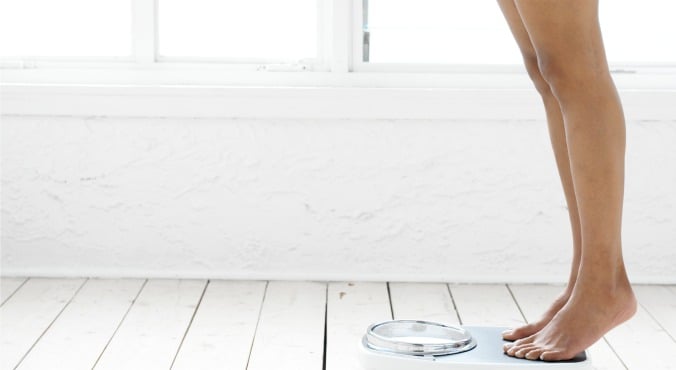
Image: iStock
At its best, stepping on the scales is a simple exercise in maths. At its worst, that maths can feel like you’re tackling algebra without a teacher: puzzling, stressful, frustrating. (And you don’t even get a cool pencil case as a reward.)
So, does this mean we’ve got our scales technique all wrong?
Quite possibly, says Dr Cindy Pan, a women’s health expert with over a decade’s experience as a GP. “If you feel good, look good and are generally in good health, there’s no reason to weigh yourself at all,” she reveals.
So… when you lose weight, where does it go?
In this case, the fit of your clothes is a better guide of any weight fluctuations. “If you’re eating healthily, daily weigh-ins aren’t helpful. It would be like having a mammogram every day – there’s just no need.”
If you are trying to lose weight, say, for health reasons, Dr Pan agrees that weighing yourself can be encouraging. But it has to be done in a way that benefits YOUR cause, “And there’s not a one-size-fits-all approach to this,” she admits.
If you’re motivated by getting lots of feedback, weighing yourself daily could be the way to go. A study in science journal PLOS ONE monitored 40 people signed up to health-improvement programs, and found participants were more likely to lose weight when they weighed themselves daily – and gain weight when they left it over a month between scales visits.
